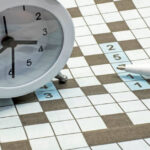Jaw popping is a surprisingly common experience, often noticed when chewing, yawning, or even speaking. For many people, it is a harmless occurrence caused by the shifting of the temporomandibular joint (TMJ), while for others, it may be a symptom of a more complex underlying issue such as temporomandibular joint disorder (TMD), arthritis, or muscular imbalances. Understanding why jaws pop, what it means for long-term health, and when to seek treatment is crucial for preventing further complications. In the first 100 words, the main intent of this article is to clarify that jaw popping can range from being a benign sound to a signal of deeper dysfunction, depending on frequency, associated pain, and daily impact. This article explores its causes, symptoms, treatment options, and preventive measures in detail, helping readers recognize when intervention is necessary. “A sound in the jaw is more than just noise; it’s communication from the body,” says one oral health expert.
Jaw popping, while sometimes dismissed as trivial, has captured growing attention among dentists, doctors, and patients alike. With modern lifestyles filled with stress, teeth grinding, poor posture, and changing diets, the jaw joint is increasingly strained. Some people experience a click only once in a while, but others live with chronic popping, locking, or discomfort that affects speech, chewing, and even sleep. Addressing this issue requires a balance of understanding anatomy, daily habits, medical care, and preventive strategies. As one physician notes, “Jaw health is often overlooked until discomfort becomes unavoidable.” The aim of this article is to provide a comprehensive understanding of jaw popping and how it intersects with broader health concerns.
Understanding the Temporomandibular Joint (TMJ)
The temporomandibular joint is one of the most complex joints in the human body, enabling hinge and sliding movements that allow us to eat, talk, and express emotions. Unlike simpler joints, the TMJ involves not only bone structures but also cartilage, ligaments, and muscles that synchronize in delicate harmony. When this balance is disrupted, even slightly, audible pops or clicks may occur. These sounds often arise from displacement of the articular disc within the joint or from muscular tension that alters the smooth movement of the jaw. While many cases resolve on their own, persistent popping signals strain on the joint’s integrity.
Medical literature frequently emphasizes that jaw popping is rarely an isolated symptom. It often accompanies stiffness, tenderness, or even headaches, suggesting systemic involvement. When the disc slips out of its usual position during movement, a “click” occurs as it returns to alignment. In milder scenarios, the joint adapts and continues functioning, but repeated stress may lead to inflammation or degeneration. The uniqueness of the TMJ lies in its dual role as both a hinge and gliding joint, making it prone to complex dysfunction. As such, popping is often the first sign that the system’s fine coordination is faltering, requiring closer observation.
Common Causes of Jaw Popping
Jaw popping can result from a variety of triggers, some temporary and others chronic. Among the most common is bruxism, or teeth grinding, which places excessive pressure on the jaw muscles and joints, particularly at night. Another frequent cause is misalignment of the bite, where uneven teeth distribution forces the joint to adjust awkwardly during chewing. Stress is also a significant contributor, as people under tension tend to clench their jaws unconsciously, leading to overuse of joint structures.
Arthritis, particularly osteoarthritis and rheumatoid arthritis, is another culprit, gradually eroding the protective cartilage within the TMJ. Injury, such as direct trauma to the face or jaw, can destabilize joint structures and create lasting pops or clicks. Furthermore, lifestyle factors such as gum chewing, nail biting, or eating hard foods can exacerbate strain. “The jaw remembers every small habit we impose on it,” one maxillofacial specialist explained. In some cases, congenital factors like jaw shape and genetics predispose individuals to popping. Understanding these causes is essential because treatment depends on addressing the root factor rather than just the audible symptom.
Symptoms Associated with Jaw Popping
While popping itself is an audible sign, it is often accompanied by a spectrum of other symptoms that provide insight into its severity. Many people notice pain or tenderness near the ear, which may spread to the temple or neck. Headaches, especially tension-type headaches, frequently accompany jaw issues due to interconnected muscle pathways. Some individuals experience difficulty opening the mouth fully, reporting a sensation of “locking” that can be alarming. Others describe earaches, dizziness, or ringing in the ears, symptoms often mistaken for unrelated conditions.
Clicking without pain is usually benign, but when combined with discomfort, swelling, or restricted motion, it may indicate temporomandibular joint disorder. The psychological burden should not be underestimated, as chronic popping can make eating socially uncomfortable or even embarrassing. For some, it creates anxiety about dental visits or surgery. The body’s warning system relies on these cumulative signals, which together suggest whether professional care is necessary. As a patient once said during an oral consultation, “It’s not the sound that scares me, it’s the fear of what it means for my future.”
Table 1: Key Causes and Symptoms of Jaw Popping
| Cause | Description | Associated Symptoms |
|---|---|---|
| Teeth Grinding (Bruxism) | Nighttime clenching wears muscles and TMJ structures | Morning stiffness, headaches |
| Stress and Jaw Clenching | Emotional stress triggers unconscious tightening | Tenderness, popping, muscle fatigue |
| Arthritis | Cartilage breakdown in TMJ joint | Chronic pain, swelling, reduced motion |
| Trauma/Injury | Direct hit destabilizes joint | Persistent popping, limited opening |
| Poor Bite Alignment | Uneven teeth strain joint balance | Clicking, jaw discomfort, chewing issues |
| Excessive Habits (gum/nails) | Repetitive strain from chewing or biting | Tenderness, recurring pops |
Medical Conditions Linked to Jaw Popping
Jaw popping is frequently linked with temporomandibular joint disorder (TMD), a condition encompassing structural and muscular dysfunction of the jaw. TMD is multifactorial, meaning genetics, injury, and habits can all contribute. Arthritis also plays a strong role, with degenerative changes weakening cartilage and causing noisy movements. Autoimmune conditions like rheumatoid arthritis can attack the joint lining, accelerating wear.
Interestingly, sleep apnea has also been associated with jaw dysfunction, as irregular breathing patterns often coincide with clenching or grinding during sleep. Postural problems, especially in people working long hours at desks, shift the alignment of the head and neck, creating added pressure on the jaw joint. Chronic sinus issues may amplify the problem by causing pressure changes around the ear and facial bones. The wide range of connections underscores how jaw popping can be both a local mechanical issue and a sign of systemic health imbalances. It reminds us that jaw function reflects more than oral health; it reflects whole-body wellness.
Diagnostic Approaches
When jaw popping becomes concerning, diagnosis typically begins with a clinical examination by a dentist or oral specialist. They assess jaw movement, listen for clicks, and evaluate range of motion. Palpating the muscles helps identify tenderness or inflammation. Imaging plays a critical role in confirming structural problems. X-rays may reveal bone irregularities, while MRI scans highlight soft tissues, particularly the disc within the TMJ. CT scans are sometimes employed for detailed views of bony structures.
Dentists may also analyze bite patterns using molds or digital scanning, looking for misalignment that forces uneven motion. Questionnaires about stress levels, sleep habits, and dietary behaviors often accompany physical exams, as lifestyle factors heavily influence TMJ health. Diagnosis is rarely about one test alone; instead, it combines physical evidence with patient history. Accurate identification of root causes prevents unnecessary or invasive treatments. One clinician remarked, “The joint speaks a language of movement and sound; our job is to interpret it correctly.”
Treatment Options for Jaw Popping
Treatment depends on the severity of symptoms and underlying causes. For mild cases, self-care often proves effective. Applying warm compresses to the jaw, practicing relaxation techniques, and avoiding hard or chewy foods help reduce strain. Over-the-counter anti-inflammatories relieve discomfort. Dentists frequently recommend mouthguards for patients with bruxism, preventing nighttime grinding.
In moderate cases, physical therapy focusing on jaw exercises and posture correction plays a key role. Stretching and strengthening targeted muscles restores balance to the joint. For arthritis-related popping, medications such as corticosteroids may reduce inflammation. Severe cases sometimes require surgical intervention, though it is generally a last resort. Procedures range from minimally invasive arthrocentesis, which flushes the joint, to open surgery for structural repair. Botox injections have recently gained popularity for relaxing overactive muscles contributing to jaw tension. Importantly, a tailored approach ensures patients avoid overtreatment. As one oral surgeon advises, “We treat people, not just sounds. Every jaw tells a different story.”
Table 2: Treatment Approaches for Jaw Popping
| Treatment Type | Description | Best For |
|---|---|---|
| Self-Care/Home Remedies | Warm compress, avoiding gum, relaxation | Mild popping without pain |
| Mouthguards | Prevent teeth grinding during sleep | Bruxism-related popping |
| Physical Therapy | Exercises to strengthen and realign muscles | Stress/misalignment-related cases |
| Medications | Anti-inflammatories, corticosteroids | Arthritis-related pain and swelling |
| Injections (Botox) | Reduces muscle overactivity | Chronic tension causing popping |
| Surgery | Arthrocentesis, joint repair/replacement | Severe structural damage or persistent TMD |
Preventive Strategies
Preventing jaw popping involves cultivating habits that protect the TMJ from strain. Stress management is crucial, as clenching under pressure is one of the leading causes. Techniques such as mindfulness, meditation, and regular physical activity reduce unconscious tightening. Maintaining good posture while working or using digital devices helps align the jaw naturally. Avoiding hard foods, frequent gum chewing, or excessive nail biting also reduces risk.
Dentists encourage patients to perform gentle jaw stretches daily, improving flexibility and circulation. Regular dental checkups detect misalignment or early wear before they escalate into bigger issues. Importantly, sleep hygiene plays a role in controlling bruxism. Wearing a protective night guard, especially for those with grinding tendencies, preserves both teeth and joint structures. A proactive approach not only prevents popping but also supports overall oral and musculoskeletal health. As one preventive dentistry advocate summarized, “The jaw thrives in balance. Our role is to maintain that balance before disruption occurs.”
Psychological and Social Impact
Although often overlooked, the social and psychological effects of jaw popping can be profound. Constant clicking during meals may cause self-consciousness, especially in group settings. The unpredictability of locking episodes creates anxiety, leading some individuals to avoid certain foods or social interactions. Chronic discomfort can also disrupt sleep, leading to irritability and fatigue. When coupled with stress, this creates a cycle where anxiety worsens clenching, which in turn intensifies popping.
Mental health professionals note that chronic conditions like TMD are closely linked with depression and anxiety. Addressing psychological well-being alongside physical treatment leads to better outcomes. Support groups and counseling help individuals cope with the daily frustrations of jaw dysfunction. Awareness campaigns remind people that they are not alone; millions share similar challenges. “Living with jaw popping isn’t just a medical journey—it’s an emotional one too,” remarked a patient who found relief after combining therapy with physical treatment.
Conclusion
Jaw popping, while often dismissed as a minor annoyance, carries significant meaning for oral and overall health. For some, it remains a harmless sound with no consequences, but for others, it signals deeper dysfunction within one of the body’s most complex joints. Recognizing causes ranging from bruxism and stress to arthritis and trauma is key to choosing the right treatment. Modern approaches combine self-care, dental appliances, physical therapy, and, in rare cases, surgery. Preventive strategies focusing on stress reduction, posture, and healthy oral habits ensure long-term joint stability.
Equally important is acknowledging the emotional toll of jaw popping, which can affect confidence, social comfort, and mental health. With timely diagnosis and proper care, most individuals find relief and regain control of their daily lives. To borrow the words of one dentist, “The jaw is a storyteller. If we listen carefully, its pops and clicks reveal what it needs most.” Ultimately, jaw popping is not merely a sound—it is a reminder of how closely our habits, health, and well-being are intertwined.
FAQs
1. Is jaw popping always a sign of a serious medical condition?
Not necessarily. Occasional jaw popping without pain is usually harmless and often results from minor joint shifts. However, if it is frequent, painful, or associated with restricted movement, it could indicate temporomandibular joint disorder (TMD), arthritis, or muscle imbalance. Persistent symptoms should be evaluated by a dental or medical professional to rule out underlying issues.
2. Can stress really cause jaw popping?
Yes. Stress often leads to unconscious habits like clenching or grinding teeth, which place strain on the temporomandibular joint. Over time, this can create tension, misalignment, and popping sounds. Stress management strategies such as relaxation techniques, breathing exercises, and mindfulness can reduce jaw strain significantly.
3. What home remedies can help reduce jaw popping?
Simple approaches like applying warm compresses, practicing gentle jaw stretches, avoiding gum chewing, and eating softer foods can reduce discomfort. A night guard prescribed by a dentist can also prevent nighttime grinding. While these measures work for mild cases, persistent popping with pain requires professional attention.
4. When should I see a doctor or dentist about jaw popping?
Seek medical evaluation if jaw popping is frequent, painful, accompanied by locking, swelling, or difficulty opening the mouth. These may signal temporomandibular joint disorder or structural issues requiring diagnostic imaging and targeted treatment. Early consultation prevents worsening of symptoms and avoids invasive procedures later.
5. Can jaw popping be permanently cured?
In many cases, jaw popping can be managed effectively, though permanent “cures” depend on the cause. Lifestyle adjustments, dental appliances, physical therapy, and stress management often provide long-term relief. For severe structural issues, surgical options may be considered, though these are typically reserved for persistent cases.











